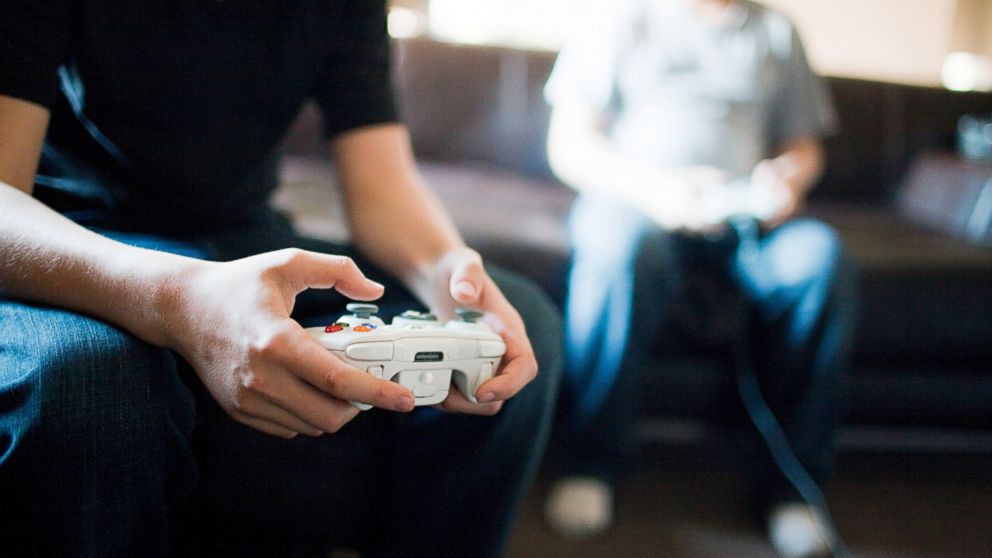5 Things to Know About Gamergate
What's behind the culture clash of gamers?

— -- intro: With the popularity of games on consoles, online and via mobile devices, there is no longer one profile of the "typical" gamer.
A controversy known as Gamergate has exploded over the past two months, splintering the gaming community while bringing issues of gender and diversity to the forefront.
Gamergate has stoked a war over social media that has often times waded into dangerous territory, causing some gamers to fear for their safety and even cancel public events.
Here are five things to know about Gamergate.
quicklist: 1title: Gamergate Beginstext: Gamergate started in August after Eron Gjoni, a man identifying himself as the ex-boyfriend of indie game developer Zoe Quinn, wrote a rambling blog post accusing her of infidelity.
Quinn was on the receiving end of online threats from people who insinuated she may have had trysts with video game journalists, resulting in her getting better coverage of her game, Depression Quest.
Quinn replied on her blog that she would not "address anything having to do with the validity of the specific claims made by an angry ex-boyfriend with an axe to grind and a desire to use 4chan as his own personal army."
4chan is a website where many users post anonymously.
"The idea that I am required to debunk a manifesto of my sexual past written by an openly malicious ex-boyfriend in order to continue participating in this industry is horrifying, and I won’t do it," she wrote.
Gjoni later posted that he did not "stand by the current abuse and harassment of Zoe Quinn or friends."
"Stop doing that," he wrote. "It is not in anyone's best interest."
Nevertheless, the incident is viewed as the genesis of Gamergate, fostering an even bigger discussion about the role that diversity plays in the gaming industry.
quicklist: 2title: What's It All Really About?text: Game developer Brianna Wu sums up what she said is the "central issue" of the debate in a tweet:
"The central issue of Gamergate is some people think they own videogame culture. They don't. Humans have made games since living in caves," Wu tweeted from her handle @Spacekatgal.
A Twitter user named @The_Camera_Girl offered a different point of view.
"Dear everybody posting in #gamergate about harassment: Please find another tag to post in. GG is about ethics in game journalism. Thanks!"
quicklist: 3title: Gamergate Gets Uglytext: A slew of female gamers have reported being doxxed -- having their personal information posted online -- and said they have received threats of rape and murder.
Anita Sarkeesian, a feminist video game critic, decided to cancel a speech about women in gaming at Utah State University after threats to kill her and others.
Sarkeesian said she canceled after the school said it would still allow the concealed carry of weapons, despite the anonymous threat.
After assessing the threat with law enforcement agencies, the school said anyone with a concealed carry permit would be allowed to have firearms in the venue.
Read More: University Defends Response to Threat to Speaker
Last week, actress and avid gamer Felicia Day broke her silence on Gamergate in a blog post.
"I haven’t been able to stomach the risk of being afraid to get out of my car in my own driveway because I've expressed an opinion that someone on the internet didn't agree with," she wrote.
She was then doxxed.
quicklist: 4title: Operation Disrespectful Nodtext: Supporters of the hashtag #Gamergate have been putting pressure on companies to pull advertising from websites that have posted stories about tension in the gaming community. The movement has taken on the name "Operation Disrespectful Nod."
To this group, the movement isn't about misogyny, it's about journalism ethics. They've taken to calling out a list of journalists they believe haven't fairly covered the gaming industry and have asked advertisers to pull back.
Tech giant Intel received some of those complaints about the site Gamasutra and subsequently pulled its advertising campaign.
The company issued an apology earlier this month and said it realizes "that our action inadvertently created a perception that we are somehow taking sides in an increasingly bitter debate in the gaming community."
"That was not our intent, and that is not the case. When it comes to our support of equality and women, we want to be very clear: Intel believes men and women should be treated the same," the statement said.
quicklist: 5title: When Will It End?text: The hashtag #StopGamerGate has picked up steam, but what substantive measures can be taken to end the culture clash?
Chris Suellentrop, a video game critic, wrote in a New York Times opinion piece that it may be time for large gaming companies to break their silence.
"In particular, if the large companies that make video games remain quiet, they risk allowing GamerGate to win the debate over whether diversity -- of people, of ideas, of games themselves -- has a place in their culture," he wrote.



